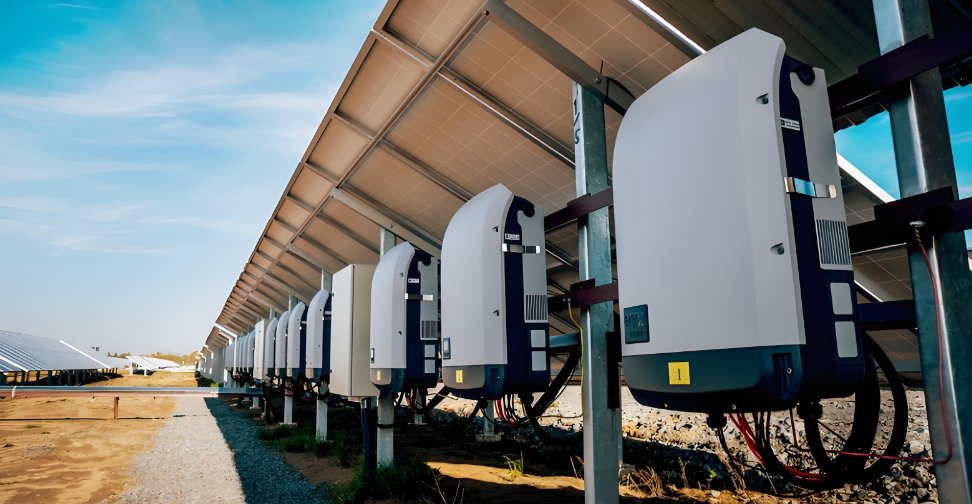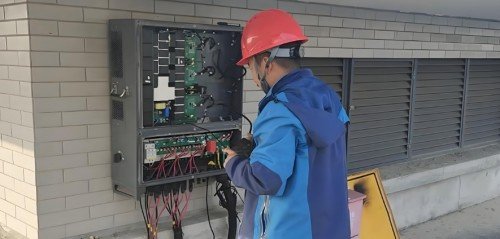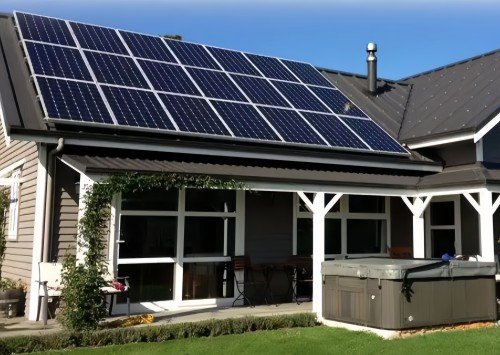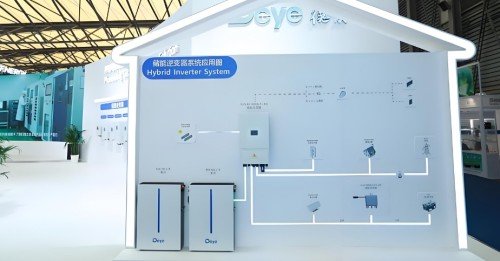When purchasing an inverter, it's easy to make mistakes that can affect your system's performance and lifespan. Avoid these common pitfalls to make a more informed decision.
Inverters are key to solar power systems, but choosing the wrong one can cause inefficiency and unnecessary costs.
Transitioning to solar energy can be exciting, but there are several mistakes to avoid when buying an inverter. Let’s explore how to choose the right one.
| Mistake | How to Avoid |
|---|---|
| Choosing an Inverter Too Small | Match inverter size to panel wattage, leaving room for future expansion. |
| Ignoring Efficiency | Choose high-efficiency models (95%-99%) with MPPT technology. |
| Not Considering Future Expansion | Plan for future growth and select scalable inverters. |
| Overlooking Battery Compatibility | Ensure the inverter is compatible with the chosen battery type and voltage. |
| Not Checking Grid Compliance | Verify local grid codes and certifications for compliance. |
| Buying Without Warranty/Support | Opt for inverters with a 5-10 year warranty and strong customer service. |
| Ignoring Environmental Factors | Choose inverters suited to your local climate and environmental conditions. |
| Skipping Proper Sizing | Size the inverter based on current and future energy needs. |
| Choosing Based on Price Alone | Balance cost with efficiency, warranty, and quality. |
| Not Factoring in Maintenance | Research the inverter’s maintenance needs and ensure easy service access. |
Choosing an Inverter That Is Too Small
Choosing an inverter that is too small for your solar system can limit your energy production. Always match the inverter size to the total wattage of your solar panels, leaving room for potential expansion in the future.
Size matters! Make sure the inverter matches your solar panel capacity and has room for future growth.
To avoid this mistake, select an inverter that can handle your current energy needs and provide enough headroom for future panel installations. This way, you won’t have to replace the inverter when you add more panels.
| Panel Capacity (W) | Recommended Inverter Size (W) |
|---|---|
| 2000W | 2000W-2500W |
| 3000W | 3000W-3500W |
| 5000W | 5000W-6000W |
Ignoring the Efficiency Rating
Ignoring the efficiency rating is a common mistake. A high-efficiency inverter ensures more of the solar power is converted into usable electricity. Look for models with a minimum of 95% efficiency, and choose those with Maximum Power Point Tracking (MPPT) for best performance.
Efficiency is crucial. Pick inverters with high efficiency to maximize your energy output.
When choosing an inverter, always check the efficiency rating1. The higher the percentage, the better the inverter will perform in converting energy.
| Efficiency Rating | Example Inverter Models |
|---|---|
| 95% and above | Model A, Model B |
| 90%-94% | Model C |
| Below 90% | Model D |
Not Considering Future Expansion
If you plan to increase your solar system capacity in the future, it’s essential to choose an inverter that supports future expansion. Opt for an inverter that allows additional solar panels without requiring a full replacement.
Plan for growth. Select scalable inverters for future upgrades.
Most inverters come in different models with varying expansion capabilities. Always check if the inverter can support more panels as your energy needs grow.
| Inverter Model | Maximum Panel Capacity | Expansion Capabilities |
|---|---|---|
| Model A | 5000W | Easy upgrade options |
| Model B | 6000W | Supports 20% expansion |
| Model C | 7000W | Needs full replacement |
Overlooking Compatibility with Batteries
Not all inverters are compatible with every type of battery. Make sure your inverter works with the specific battery type you plan to use, especially for energy storage.
Battery compatibility is key. Choose an inverter that matches your battery's voltage and type.
Before buying, check the manufacturer’s specifications for battery compatibility. Some inverters are designed for specific battery types like lithium-ion or lead-acid.
| Battery Type | Compatible Inverter Models |
|---|---|
| Lithium-ion2 | Model A, Model B |
| Lead-acid3 | Model C |
| Gel/AGM4 | Model D |
Not Checking for Grid Compliance
Ensure that your inverter complies with local grid regulations and certifications. Failure to meet grid compliance can result in the system being unsafe or inefficient.
Grid compliance ensures safety and efficiency. Verify local codes and certifications.
Each country or region may have specific rules regarding grid compliance. Verify that your inverter meets these standards to avoid future issues.
| Country/Region | Required Certifications |
|---|---|
| Europe | CE Certification |
| US | UL1741, IEEE 1547 |
| Australia | AS4777 |
Buying an Inverter with Poor Warranty and Support
An inverter with a short warranty or poor customer support can lead to headaches down the road. Choose a model that comes with at least 5-10 years of warranty coverage and good customer support.
Warranty is important. Always check the manufacturer’s support services and warranty length.
A strong warranty and reliable customer support will give you peace of mind in case any issues arise with your inverter.
| Warranty Length | Customer Support Quality |
|---|---|
| 5 years | Fast response, 24/7 service |
| 7 years | Standard response, weekdays |
| 10 years | Exceptional service, online chat |
Not Considering Environmental Factors
Environmental factors such as temperature, humidity, and weather conditions can affect the inverter's performance. Choose one suited for your local climate, ensuring it can withstand extreme conditions.
Consider the environment. Choose an inverter that suits your location’s climate and weather.
Check the inverter’s specifications for its operating temperature range and environmental certifications to ensure it can handle your area’s weather.
| Environmental Factor | Recommended Inverter Features |
|---|---|
| High temperature | High heat tolerance, IP65 rating |
| High humidity | IP67, corrosion-resistant |
| Snow and ice | Low temperature start-up |
Skipping Proper Sizing of the System
Choosing an inverter that doesn’t match your energy needs can lead to inefficiency. Always calculate the total energy consumption and select an inverter that can handle it while allowing room for growth.
Proper sizing is essential for a balanced system. Size your inverter to match your needs now and in the future.
Use a professional energy audit or do your own calculations to ensure the inverter matches your expected usage.
| Energy Consumption (kWh) | Recommended Inverter Size (kW) |
|---|---|
| 5 kWh | 5-6 kW |
| 10 kWh | 10-12 kW |
| 15 kWh | 15-18 kW |
Choosing an Inverter Based Solely on Price
While price is a major factor, choosing an inverter based solely on cost can lead to poor performance. Focus on getting the best value by considering efficiency, warranty, and customer support alongside the price.
Don’t just look at the price. Weigh all factors before making your decision.
The cheapest inverter may save money upfront but could cost you more in the long run. Always balance cost with features.
| Price Range (EUR) | Features | Efficiency |
|---|---|---|
| Low (€500-€1000) | Basic features, short warranty | 85% |
| Moderate (€1000-€1500) | Moderate features, 5-7 year warranty | 85% |
| High (€1500-€3000) | High efficiency, long warranty | 90%+ |
Not Factoring in Maintenance Needs
Neglecting maintenance requirements can lead to higher repair costs or system downtime. Check the manufacturer's guidelines for proper upkeep.
Maintenance is key to ensuring your inverter runs smoothly over the years.
Some inverters require more maintenance than others. Choose one that’s easy to maintain or has customer service that can assist with repairs or servicing.
| Maintenance Needs | Inverter Model | Frequency |
|---|---|---|
| Low | Model A | Every 2 years |
| Medium | Model B | Annually |
| High | Model C | Every 6 months |
Conclusion
Choosing the right inverter can make or break your solar investment. Avoid these common mistakes to get the best performance and long-term savings from your system.
Footnote:
-
This link explains efficiency rating and how it impacts the performance of solar inverters. ↩
-
This link explains the features and advantages of lithium-ion batteries in inverter systems. ↩
-
This link provides details on lead-acid batteries, their uses, and maintenance in inverters. ↩
-
This link explores the benefits and characteristics of Gel/AGM batteries in inverter systems. ↩














